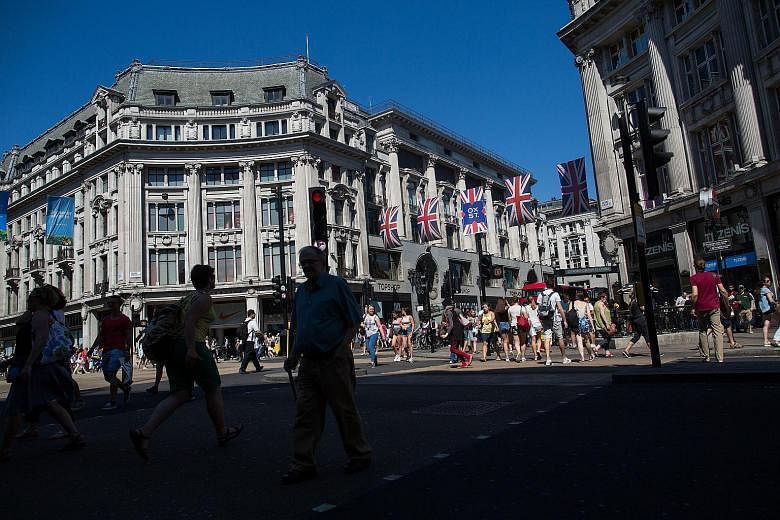Local firms doing business with Britain should pay heed to possible changes in immigration policy following the country's planned exit from the European Union.
These changes would affect the free movement of labour from the EU - a factor that has attracted citizens from other member states to live and work in Britain.
Mr Kenneth Toh, centre director of trade agency International Enterprise (IE) Singapore's office in London, said businesses from the Republic should assess the situation in Britain's period of transition.
Labour issues will have a bearing on the consumer, retail and hospitality sectors. Should stringent measures be put in place, stemming the flow of EU labour to Britain, this would mean higher labour costs.
Mr Toh said if negotiations between Britain and the EU become protracted during the two-year window for its separation from the bloc, this would affect the growth and expansion of businesses in Britain. Singapore firms which have trade and investment interests in Britain would also be affected.
Singapore businesses, he said, should also be aware of the impact of any new trade agreement between Britain and the EU as this would affect the supply chain for goods and services - and would increase the cost of trade.
He advised firms to consider establishing a presence on the continent to retain a foothold in Europe. They could "look at alternative hubs" like Frankfurt or Paris.
Mr Toh said he has not seen any reversal of investment deals from Singapore firms. He cited Centurion Corp, which signed a £20.1 million deal (S$35.6 million) to buy four student accommodation facilities in Britain around the time of the vote. The deal was completed on July 1.
Centurion chief executive Kong Chee Min said the effects of Brexit on Britain's educational sector are expected to be minimal. "Domestic demand for higher education is unlikely to be directly affected, while the weaker pound may attract more international students to pursue higher education in the UK, which is one of the key education hubs globally," he said. "The long-term demand for student accommodation in the UK will remain resilient."
While the weaker pound would mean lower costs for Singapore investors buying assets in Britain, it is the reverse for British businesses, Mr Toh said.
IE Singapore said total trade with Britain for the first half of the year was $5.79 billion, up from $5.65 billion in the same period last year.
Singapore's exports to Britain totalled $1.92 billion in the first half of 2016, while it imported $3.87 billion from Britain.


